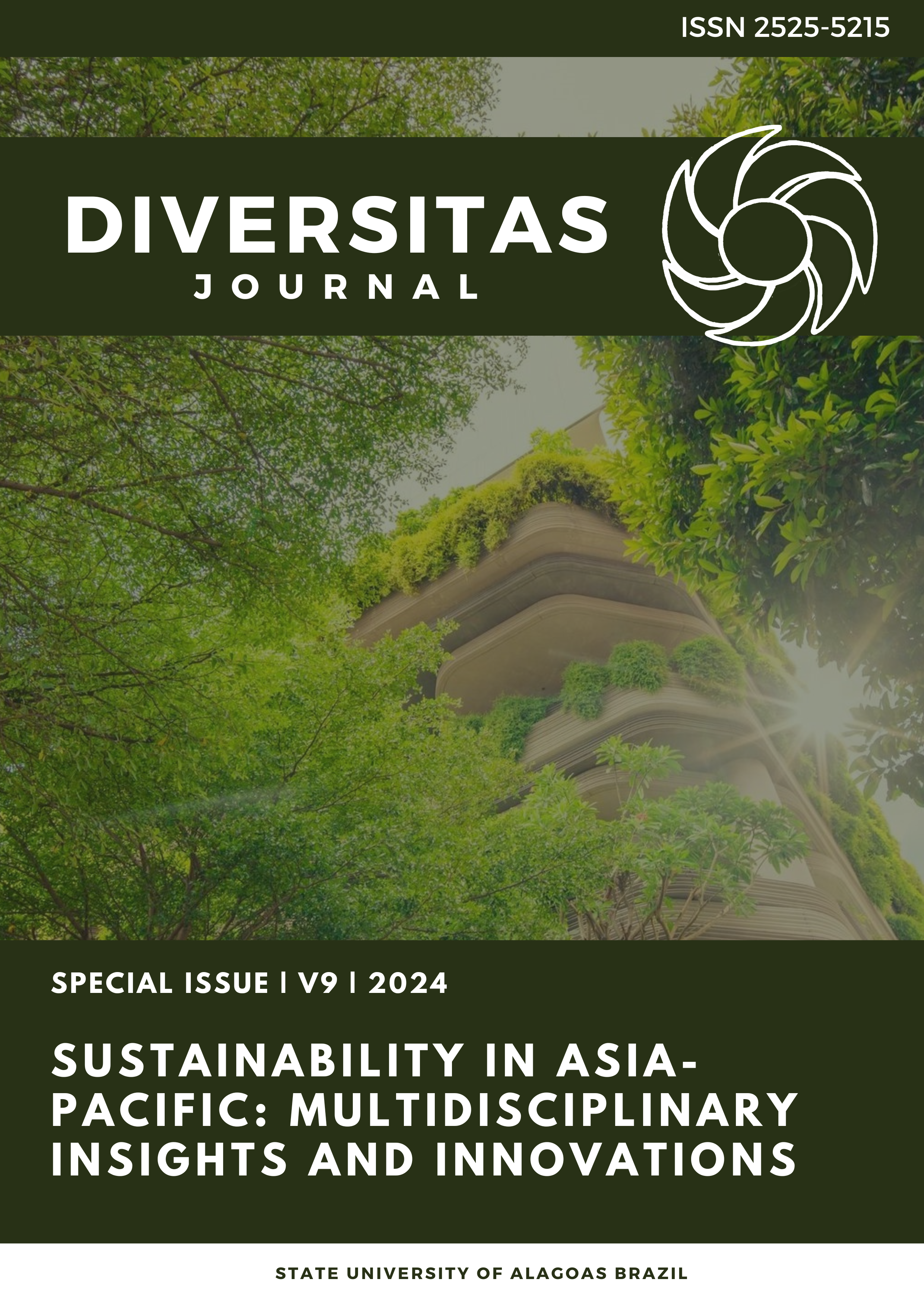Place-based post graduate education case analysis: Experiential learning at the work-place
DOI:
https://doi.org/10.48017/dj.v9i1_Special.2965Keywords:
case study, postraduate, experience, experiential learningAbstract
This research analyzed three (3) cases in the Institute of Graduate & Professional Studies (IGPS) at Universidad de Manila where place-based education (PBE) was realized at the place of work of post graduate students through experiential learning. In addition, actual experiences of executive scholars who underwent training at the Asian Institute of Management (AIM) under the CHED-AIM program “Global Academic Leadership Program (GALP) for Local Universities and Colleges” (LUC) shared their experiences to give additional enlightenment on the impact of place-based education. Results underline the success impact of PBE to post graduate students’ integration of principles, theories, skills, frameworks, and methodologies learned from the courses of the program and applied in the place of work. Utilization of the PBE learning approach has proven to increase the academic achievement of students in their post-graduate studies. Two (2) models were formulated from results, both giving evidence of the utilization and implementation of graduate students’ own learning to the real-life experiences at the workplace, in response to and in alignment with the United Nations Sustainable Development Goal (UNSDG) No. 4 (Quality Education)Metrics
References
Ched memorandum orders - ched. (n.d.-a). https://ched.gov.ph/2019-ched-memorandum-orders/
Bhavsar, G. P. (n.d.). Integrating work-based experiential learning into coursework: Conducting Quality Improvement Projects. Latest TOC RSS. https://www.ingentaconnect.com/contentone/aupha/jhae/2022/00000039/00000001/art00003
Bricker, Todd E. Community Problem Solving in Criminal Justice: Breaking Barriers through Service-Learning. Journal of Service-Learning in Higher Education, v15 p118-135 Sum 2022.
By, Mcleod, S., on, U., & 2, F. (2024a, February 2). Kolb’s learning Styles & Experiential Learning Cycle. Simply Psychology. https://www.simplypsychology.org/learning-kolb.html
CHED-AIM Global Academic Leadership Program - Executive education. School of Executive Education and Lifelong Learning. (2022, March 4). https://executiveeducation.aim.edu/ ched-aim-global-academic-leadership-program/
CHED-AIM for LUC Presidents and Government Partners Cohort 3 Handbook Version 1. AIM School of Executive Education and Lifelong Learners.
CHED-AIM Global Academic Leadership Program for Local Universities and Colleges “Capstone Project Guidelines” Version 1 as of October 27, 2022.
Evans, N. (Snowy), & Acton, R. (2021). Narratives of teaching in outdoor and environmental education: What can we learn from a case study of outdoor education pedagogy? Journal of Adventure Education and Outdoor Learning, 22(3), 214–227. https://doi.org/10.1080/14729679.2021.1902828
Free vector: Forensic expert concept illustration. Freepik. (n.d.). https://www.freepik.com/free-vector/forensic-expert-concept-illustration_31745928.htm#query=forensic%20science&position=0& from_view=keyword&track=ais
Hall, S., Stevenson, A., Cabral, D., & Soderberg, C. (2022, June 8). Local learning: Place-based insight on what works to drive up essential skills participation. Learning and Work Institute. https://learningandwork.org.uk/resources/research-and-reports/local-learning/
Helate, T. H., Metaferia, T. F., & Gezahegn, T. H. (2022, October 6). English language teachers’ engagement in and preference for experiential learning for professional development. Heliyon. https://www.ncbi.nlm.nih.gov/pmc/articles/PMC9552093/
IGPS Curriculum for Master of Arts in Education (MAED) Program major in Educational Leadership and Management; Doctor of Philosophy in Education (PhDEd) major in Educational Leadership and Management; Master of Science in Criminal Justice (MSCJ) with Specialization in Criminology. Revised 2022
Jurmi, T., & Purna, B. C. (2022). Impact of place based education as teaching pedagogies for active engagement of sixth grade students in learning science. I-Manager’s Journal on School Educational Technology, 18(1), 19. https://doi.org/10.26634/jsch.18.1.19117
Kiper, Melissa. Taking Experiential Learning Out of the Classroom: The Benefits of Using Experiential Projects in University Organizations. Society for Marketing Advances Proceedings. Nov2022, p489-495. 7p.
benefits of experiential learning in the Workplace. [n.d.]. EdgePoint Learning. https://www.edgepointlearning.com/blog/benefits-of-experiential-learning/
Singh, E. P., Doval, J., Kumar, S., & Khan, M. M. (2022). Investigating the impact of full-term experiential learning project on management graduates: An emerging economy perspective. Review of International Business and Strategy, 32(4), 677–694. https://doi.org/10.1108/ribs-03-2021-0049
Tria, Ma. Felma C.; Gano, Leila R. Student Learning Journey Innovation Embedded in the New Master in Place-Based Education (MPBE) Program. CHED-AM GALP Capstone Project December 2022.
United Nations. (n.d.-a). Home - United Nations Sustainable Development. United Nations. https://www.un.org/sustainabledevelopment/
United Nations. (n.d.-b). Sustainable development goals: 17 goals to Transform Our World. United Nations. https://www.un.org/en/exhibits/page/sdgs-17-goals-transform-world#sdg4
Wittrock, M. C. (1987). Teaching and student thinking. Journal of Teacher Education, 38(6), 30–33. https://doi.org/10.1177/002248718703800606
Downloads
Published
How to Cite
Issue
Section
License
Copyright (c) 2024 Ma. Felma Carlos Tria, Leila R. Gano, Justinian Filoteo, Eva Imingan, Mary Jane Gonzales, Leny Dellosa

This work is licensed under a Creative Commons Attribution 4.0 International License.
The Diversitas Journal expresses that the articles are the sole responsibility of the Authors, who are familiar with Brazilian and international legislation.
Articles are peer-reviewed and care should be taken to warn of the possible incidence of plagiarism. However, plagiarism is an indisputable action by the authors.
The violation of copyright is a crime, provided for in article 184 of the Brazilian Penal Code: “Art. 184 Violating copyright and related rights: Penalty - detention, from 3 (three) months to 1 (one) year, or fine. § 1 If the violation consists of total or partial reproduction, for the purpose of direct or indirect profit, by any means or process, of intellectual work, interpretation, performance or phonogram, without the express authorization of the author, the performer, the producer , as the case may be, or whoever represents them: Penalty - imprisonment, from 2 (two) to 4 (four) years, and a fine. ”


















